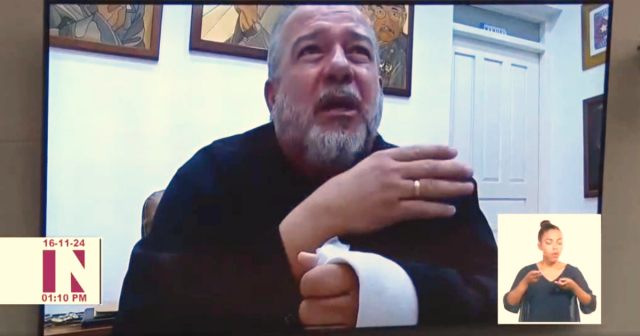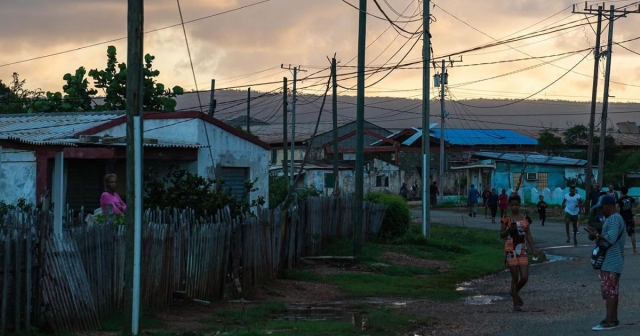The Torre K-23 hotel, located at the intersection of 23rd and K streets, opposite the Coppelia ice cream parlor in El Vedado, continues to face intense criticism as its construction nears completion.
The passersby can now see the main entrance, from which the scaffolding was removed in recent days.
However, this gigantic structure located in a city that is increasingly impoverished has already been rebranded by Cubans as the "Overlook of Misery."

With a height of 154 meters and 42 floors housing 565 five-star rooms, the hotel will be managed by the Spanish company Iberostar.
This project, financed entirely with Cuban capital, has faced numerous challenges since it began execution in 2018, originally planned to be completed in 2022.
Experts like the Cuban architect Maurys Alfonso Risco have criticized the building's design, describing it as a "dagger in the landscape of Havana." In his opinion, the structure lacks elements that adhere to the urban planning regulations of Vedado and creates inconveniences for its neighbors.
"The design is outdated, featuring technological facades that lack charm and fail to adhere to the basic principles of our tropical architecture, such as the use of covered terraces, eaves, or shutters for solar protection," noted Alfonso.
It was also noted that the reflections from the glass during peak hours make it difficult to see traffic lights, a problem that affects drivers.
Another controversial aspect is its impact on the city's skyline. “It is taller than the obelisk to José Martí, something that should never have been allowed. If it had been built in a lower area of La Rampa, it would be less aggressive for the urban image,” the architect added.
On platforms like Facebook, the Torre K-23 has been the subject of numerous critiques and humorous renamings by Cubans. Among the proposed names are: "The Lookout of Misery," "The Tower of Mordor," "The Catafalque," and "The Great Hotel Nobody Asked For."
Most of the proposals reflect popular discontent and highlight the disparity between the imposing construction and the unmet basic needs of the population.
In addition to architectural criticisms, the hotel has been pointed out as an example of government priorities that many consider misguided in the context of an energy crisis and shortages in essential sectors. "It is a building that does not reflect the needs of the people, but rather the contrast between luxury and the everyday reality of Cubans," expressed a user on social media.
The Cuban regime has not confirmed the opening date of the hotel, which had been rescheduled for 2024.
Filed under:






